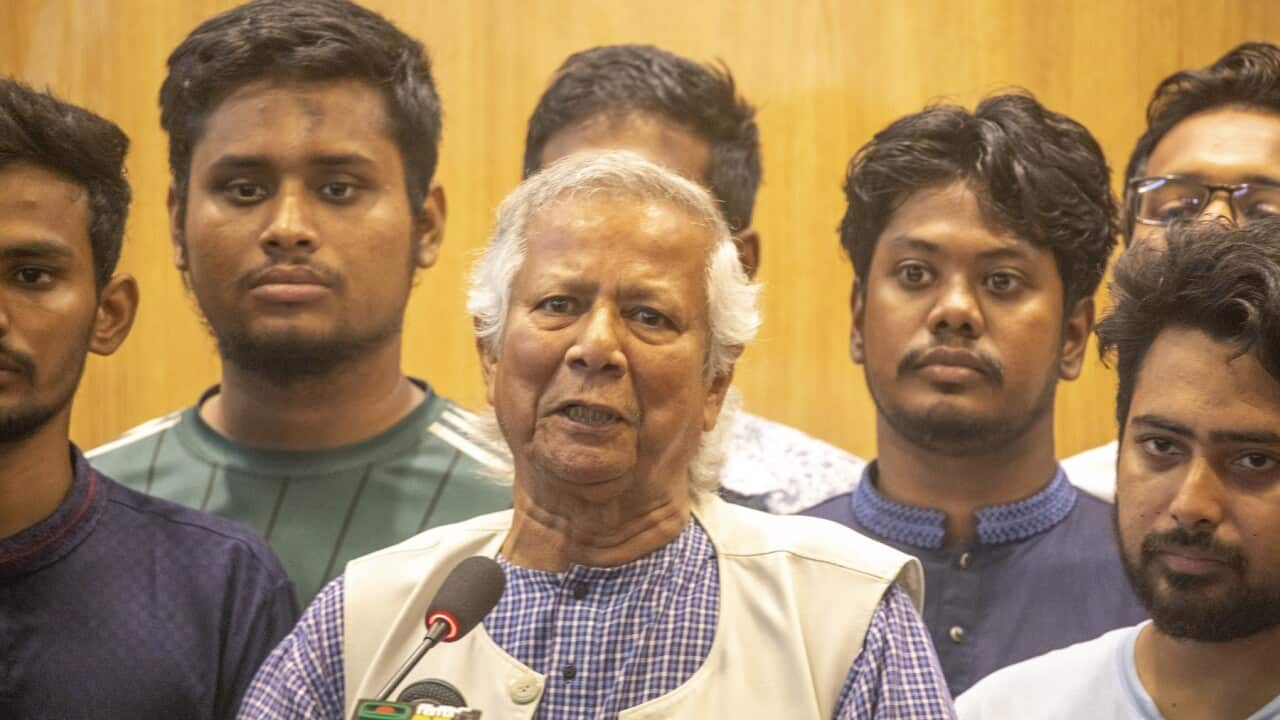TRANSCRIPT
In a ceremony in Dhaka's presidential palace, Bangladesh's new interim leader vowed to uphold the country's constitution.
The 84-year-old Nobel Prize winning economist Muhammad Yunus returned to the country from Paris on Thursday , greeted by crowds of cheering supporters.
Flanked by student leaders, Mr Yunus told reporters his wanted to unite the country.
“Bangladesh is a family. We have to unite it. We want to remove whatever dilemma there is. I want to bring those who have gone astray. So that we can work together."''
He returns three days after former Prime Minister Sheikh Hasina fled to India, following weeks of turmoil sparked by unrest over quotas for government jobs, which critics say favour the ruling party.
Student demonstrations which began in July spiralled into deadly protests against Ms Hasina's increasingly autocratic 15-year rule.
Mr Yunus said his first priority was restoring order.
“On the way back, I heard that law and order was being disrupted here. People are carrying out attacks on others, burning houses, destroying property, attacking offices and courts, attacking minorities, Hindus, Buddhists, Christians, Ahmadiyya’s. These are part of the conspiracy. These are not our matters. Our job is to protect everyone.”
Mr Yunus, a harsh critic of the ousted Prime Minister, was chosen by student leaders who said they would not accept a military-led government.
His new interim cabinet includes two student protest leaders, Asif Mahmud and Nahid Islam.
On Tuesday, they issued a call for an end to the unrest.
On social media, Nahid Islam told supporters:
“We strongly condemn and raise strong objection to the communal violence, looting and arson. We have to be ready to ensure such kinds of incidents do not happen again. We have to take responsibility.”
Another member of the interim government, Farida Akther [[Ms]], said the demands of the students should be respected.
“The new government, this is a very important task that we are given that we should really take care of all the demands that students were asking for and also the conditions that the common people are suffering from. We should be dealing with the high prices and inflation and all these things so this is very important.”
On the streets of Dhaka, protesters told the BBC they hoped this moment would return power to the population.
“We dream for a democratic country where no leader can be a dictator. We are Generation Z and we know how to raise our boys and how to stabilise our country.”
Muhammad Yunus rose to fame as the pioneer of the microcredit movement.
Known as the "banker to the poor", he won the Nobel Prize for helping lift millions out of poverty by making tiny loans to the rural poor as founder of Grameen Bank.
He has been charged with corruption and labour law breaches in Bangladesh - which supporters say are the government's attempts to silence him.
He now faces the challenge of trying to revive the struggling economy and pave the way for free and fair elections, at a critical point in Bangladesh's history.
It's a challenge he says he is willing to embrace.
“We must protect this independence. Not just protect it, but also ensure that the benefits of this independence reach every household. Otherwise, this independence will hold no value. Reaching the true essence of this independence to everyone is our pledge, our commitment—that we must do this, that we must ensure every person understands that the independence of Bangladesh means a change in their lives, a change in their circumstances, opportunities, and in the future of their children.”













